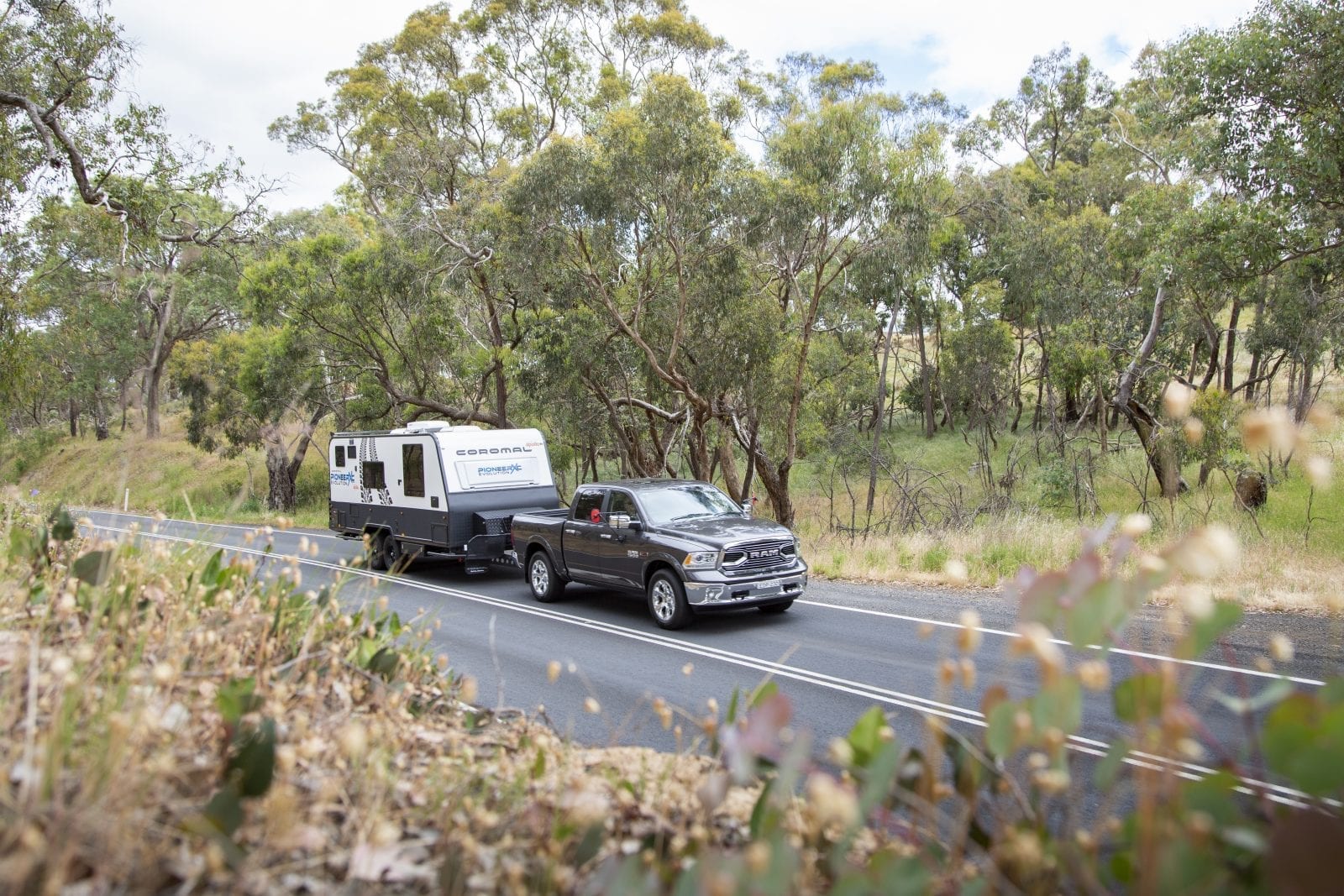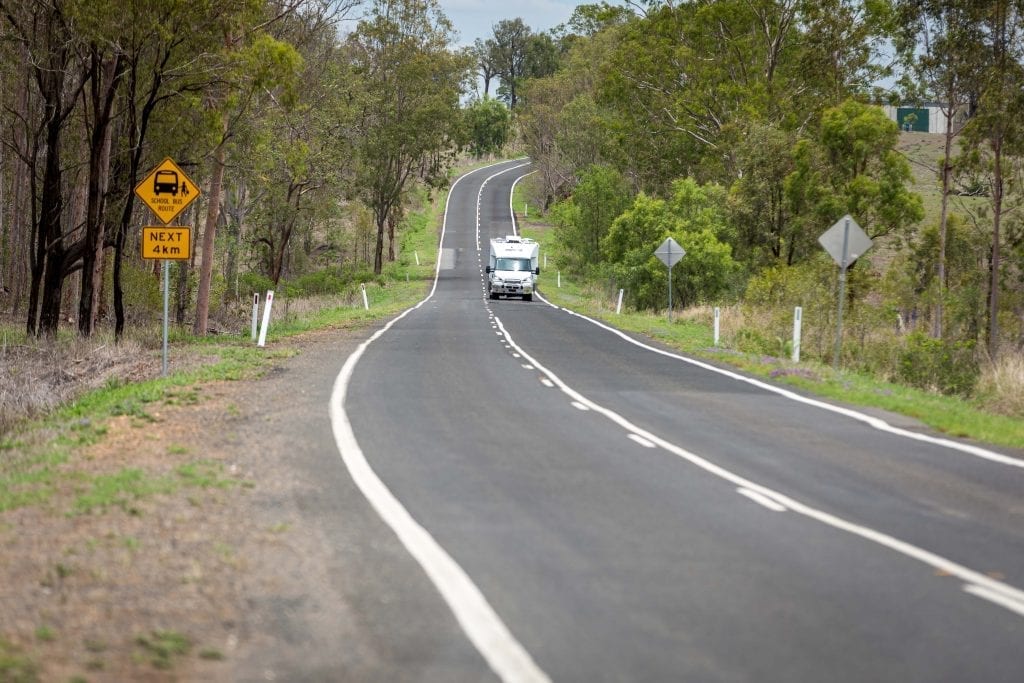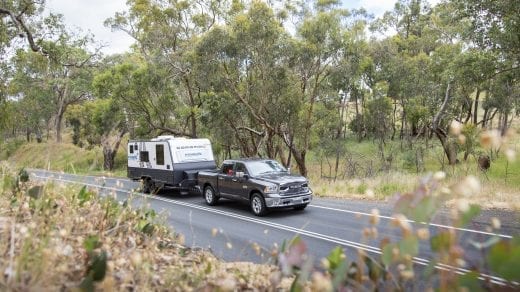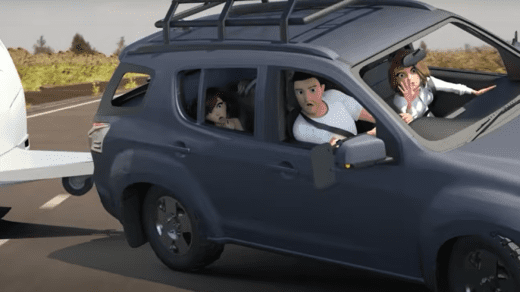Travelling in a recreational vehicle (RV) offers freedom and adventure, but road safety should always be a top priority. Among various safety considerations, managing speed is one of the most critical aspects of RV driving. Driving too fast is the single biggest contributor to death and injury on Australian roads.

Why Speed Management Matters
Driving an RV is significantly different from operating a regular car. RVs are larger, heavier, and have a higher centre of gravity, making them more challenging to manoeuvre, especially at high speeds. Excessive speed increases stopping distances, reduces reaction time, and heightens the risk of rollovers.
Speeding is not just driving faster than the posted speed limit for a particular section of road. It is also driving too fast for the prevailing weather, traffic and road conditions.
Stopping Distance
RVs require more time and distance to stop compared to smaller vehicles. The heavier the RV, the longer it takes to come to a full stop. Driving at a safe speed allows drivers to adjust and react to sudden changes, such as traffic congestion, road hazards, or unexpected stops by other vehicles.
Control and Stability
Maintaining a moderate speed enhances control and stability. High speeds can cause swaying, particularly when encountering crosswinds or when passing large trucks. Speeding also strains the braking system, which can lead to overheating and reduced braking efficiency.
Fuel Efficiency
Driving at a steady, moderate speed not only improves safety but also boosts fuel efficiency. RVs consume more fuel when driven aggressively or at high speeds due to increased aerodynamic drag.
Speed Management Tips for RV Drivers
- Know the Limits: Be aware of posted speed limits and adjust based on road conditions, weather, and traffic. Speed limits vary between states and manufacturers may also place speed restrictions so be sure to check your owners’ manual.
- Maintain a Safe Following Distance: Allow ample space between your RV and the vehicle ahead to account for longer stopping distances.
- Use Cruise Control Wisely: On open, flat roads, cruise control can help maintain a consistent speed and improve fuel efficiency.
- Slow Down on Curves and Descents: Reduce speed when navigating curves, steep descents, or uneven terrain.
- Be Weather Aware: In adverse weather conditions such as rain, snow, or strong winds, slow down to maintain traction and control.
Driving too slowly
Many drivers claim that RV owners drive too slowly, holding up traffic. Slow driving is not illegal, but unreasonably obstructing drivers to pedestrians can result in a fine. Each state and territory have its own laws on this. Generally, you should avoid driving abnormally slow for the speed limit and driving conditions, but always stay at a safe speed.
Speed management is essential for safe RV driving. By keeping speeds reasonable and adapting to changing road conditions, RV travellers can ensure a safer and more enjoyable journey. Remember, the journey is just as important as the destination—arrive safely by driving at a controlled, appropriate speed.

NSW
If your Gross Vehicle Mass (GVM) or Gross Combination Mass (GCM) is under 4.5t then you can travel at the sign posted limit. However, if your GVM or GCM is over 4.5t, the speed limit is capped at 100km/h.
WA
Maximum speed limit when towing a trailer or caravan is 100km/h.
The maximum speed for a heavy vehicle (with a GCM of over 22.5t) is 100km/h.
VIC
If your vehicle GVM is over 4.5t your speed limit is capped at 100km/h otherwise the posted speed limit applies.
TAS
Posted speed limit if towing.
Maximum speed limit on gravel roads is 80km/h.
If you are driving a bus with a GVM over 5t or another vehicle with a GVM over 12t, the maximum speed limit is 100km/h.
SA
Posted speed limit if towing.
The maximum speed limit for a vehicle with a GVM over 12t or a bus GVM over 5t is 100km/h.
ACT
There are no speed restrictions applying to caravans and trailers other than the signed maximum speed limit. The highest speed limit zone in ACT is 100 km/h.
NT
Drivers of heavy vehicles such as buses of more than 5t gross vehicle mass (GVM) or other heavy vehicles of more than 12 tonnes GVM must not exceed 100km/h.
QLD
Posted speed limit.






